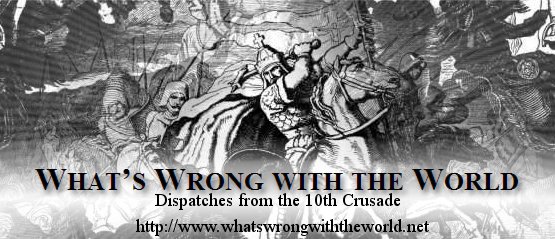Reading comprehension is a condition precedent to textual critique, Mr. Sullivan.
Compare:
Sullivan: "Anything to distract from the real scandal, I guess. Dulles' proposals for reform of the Church amount entirely to greater obedience to Rome, subservience to ecclesiastical authority, maintenance of the existing structures, and penance from the laity. I.e. more power for him. Funny how that happens, doesn't it?"
Dulles: "Some of the alienation between different groups may result from mechanisms introduced in the wake of Vatican II. The Council exalted the episcopacy to an unprecedented peak of power and responsibility. No normal individual is capable of being at once the chief teacher, the leading mystagogue, and the principal administrator for millions of Catholics, responsible for a huge array of parishes, schools, universities, hospitals, and charitable organizations. Bishops are also expected to be in constant consultation with pastoral councils and senates of priests. Within the diocese the bishop holds the fullness of legislative, judicial, and executive power.
In addition to their tasks within their respective dioceses, bishops are regularly engaged in the deliberations and decisions of the national episcopal conference to which they belong and in some cases have assignments from one or more of its multiple committees. A number of them are also involved in the government of the universal Church. They occasionally serve on congregations of the Holy See, and take part in synods of bishops. No wonder that there are failures in the handling of certain assignments of priests and other personnel.
According to the job description in the official documents, the bishop ought to be a man of high culture, firm in faith, solid in orthodoxy, a paragon of holiness, graciously winning in personality, able to assess the talents and weaknesses of others, skilled at managing large corporations and conducting fiscal policy, eloquent in the pulpit, fearless under criticism, indefatigable, and always self-possessed. Do we have in the United States a sufficient supply of priests with all these qualities? Many of the candidates being elevated to the episcopate, it would seem, are men of ordinary abilities, kind and hardworking, but incapable of measuring up to the almost superhuman responsibilities of the office. They run the risk of being morally, psychologically, and spiritually crushed under the burdens. As a prime structural problem, therefore, I would single out for special attention the episcopal office. What can be done to restore the priestly and pastoral ministry of bishops to its position of primacy?
In this context the relationship between clergy and laity may need some reconsideration. The distinction of roles, clearly spelled out by the Second Vatican Council, can be overstepped from both sides. Bishops, in their zeal to give explicit pastoral direction on every question and to control everything that goes on in their diocese, sometimes infringe on the proper competence of the laity, whose responsibility it is to apply the gospel to the circumstances of the marketplace, the professions, and political life. But the laity should understand that doctrinal teaching, pastoral governance, and liturgical leadership are tasks ordinarily reserved to persons in holy orders, especially the pope and bishops." (Emphasis added.)
We can't be reading the same document.
Wednesday, September 10, 2003
Subscribe to:
Post Comments (Atom)

No comments:
Post a Comment